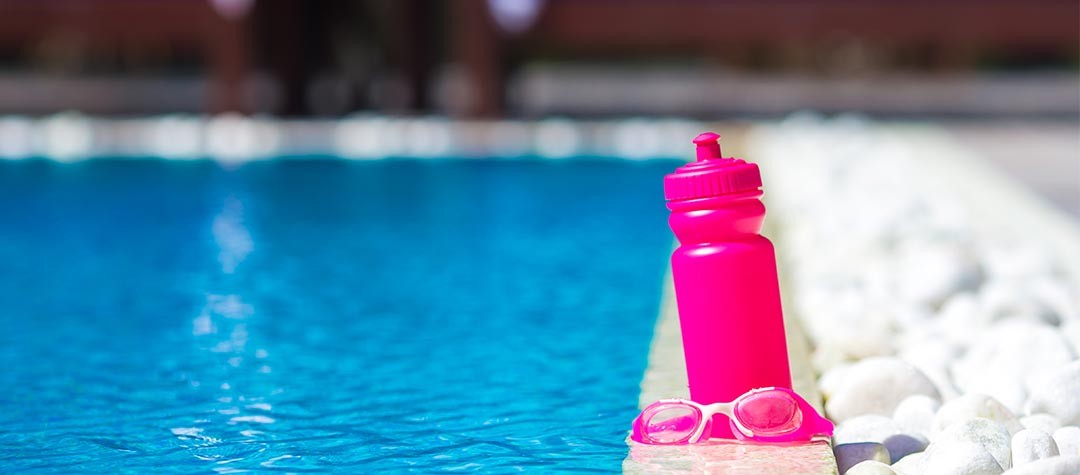Find out what you need to be eating and drinking in order to fuel your swimming sessions correctly.
What should my general diet look like as a swimmer?
Swimming takes up a huge amount of energy, so it’s important that you fuel your body accordingly. You’ll need carbohydrates such as pasta, brown rice and oats for energy, combined with protein to help your muscles develop. You’ll find plenty of protein in fish, lean meats and eggs. Make sure you’re also eating a wide variety of fruit and vegetables throughout the day to top up on vitamins, minerals and antioxidants. As with any sport, it goes without saying that foods that are high in fat and sugar, as well as fried or processed foods, should be avoided.
How much protein and carbohydrate should I be eating?
Now that you know what you should be eating, it’s time to work on getting the balance right. The two main areas you need to focus on as a swimmer are carbohydrates and protein. Although this will vary from person to person, a good rule to follow is to eat meals in ‘thirds’ - one third carbohydrates, one third protein, and one third fruit and vegetables. Aim to consume 1.5g of carbohydrate per kilogramme of your bodyweight per day, and 0.6g of protein. If you’re going to be competing, you can increase carbohydrate consumption slightly in the days leading up to the event to start building up energy reserves.
What are the best foods to eat before swimming?
Your body position in the water means that the pre-workout foods that you use for other sports might not be suited to swimming. With that in mind, it’s a good idea to leave at least two to three hours after a full meal before you swim, and an hour following a snack. When eating directly before a swim, focus on carbohydrates with a high Glycaemic Index (GI). High GI foods are digested quickly, and therefore give your body an immediate source of energy. You’ll need to experiment with what works best for you, but good options include isotonic sports drinks, fruit, and energy gels. When eating two to three hours before your swim, low GI foods like pasta, nuts and oats will provide slow release energy, so you’ll have plenty left in the tank when it’s time to train.
Do I need to eat mid-swim?
Unless you’re going to be swimming for over two hours (for example an open water swimming event or endurance training sessions) you shouldn’t need to eat anything while swimming. However if you are going to be in the pool for a long time, you need to plan how you’re going to fuel yourself come the two hour mark, or you risk hitting the dreaded ‘wall’. Small pieces of fruit are a good option if you can stomach them, but a lot of people have digestive issues when trying to consume solid foods in the water. If that’s the case, try taking an energy gel every 45 minutes after you’ve been in the water for two hours.
Do I need to drink while swimming?
It might sound strange, but you’ll actually become dehydrated quicker when you’re in water than you would out of it. The warm, humid air in a pool means you can become dehydrated in under 30 minutes, so it’s important to take regular breaks to maintain fluid levels. For sessions under an hour, drinking water will be perfectly fine. Anything over that and you’ll start to lose electrolytes, which should be topped up with an isotonic sports drink. Remember to look out for the usual signs of dehydration - darker urine, headaches, and of course, thirst.
What foods should I avoid before swimming?
There are certain foods that are a strict no-go before you hit the pool. Anything that is fried or high in fat will be hard for your body to digest, leading to discomfort in the water. Even healthier foods can cause indigestion if eaten immediately before your swim, so it’s a good idea to avoid any low GI foods in the hour before your swim. Again, this is because these foods take longer to digest, and can cause feelings of sluggishness and discomfort in the water.
What should I eat after a swim?
A key (but often overlooked) aspect of swimming nutrition is what you eat after a training session. After you’ve pushed your body to the limit in the pool, it’s vital that you focus on refuelling, rehydrating, and recovering. The key recovery period is 30 to 60 minutes after your workout, so aim to eat a snack that’s high in carbohydrates and protein in this period. Carbohydrates will bring your energy levels back up, while protein will aid muscle recovery and development. What you eat is down to personal preference, but fruit works well, as do protein shakes.
What can I eat to avoid muscle cramps?
Muscle cramps in the legs and feet are a common occurrence while swimming, and while you might think they’re the result of an insufficient warm up or injury, they could also be linked to your diet. Cramps are often a result of low levels of potassium in the body, so foods that are high in potassium like bananas make for the perfect pre-swim snack. Likewise, magnesium has been found to prevent muscle cramps. Magnesium supplements are popular with swimmers for this reason, but if you would prefer to avoid them you can snack on nuts instead.















